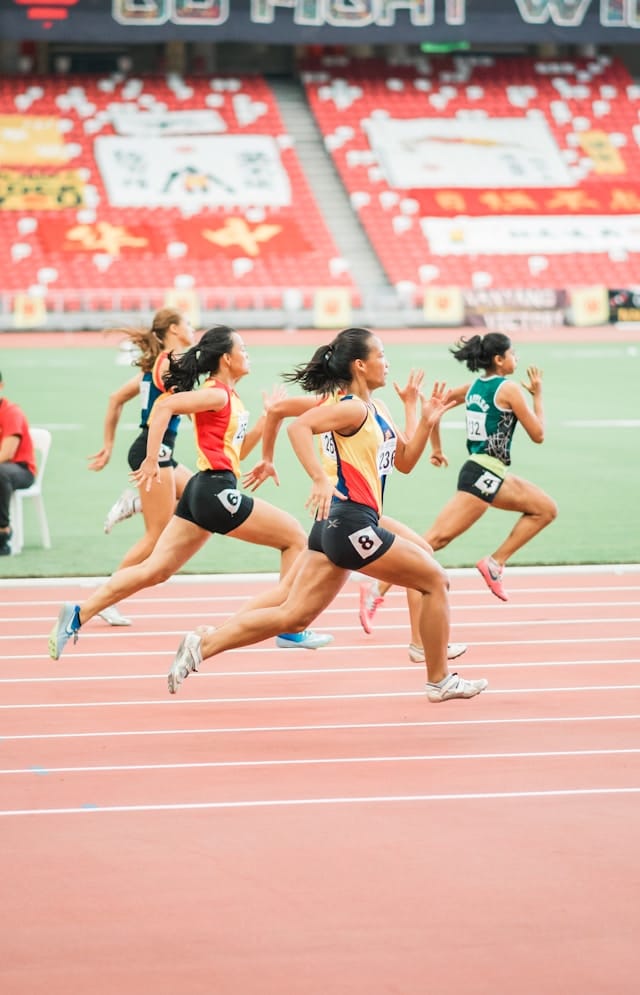What are the Optimal Sleep Conditions for Enhancing Athlete Recovery?

Sleep, as mundane as it may seem, is an essential factor for an athlete’s recovery and overall performance. Various studies and medical professionals globally agree that quality sleep is paramount for athletes, whether you are an elite professional or an enthusiastic amateur. This article delves into the vital relationship between sleep, performance, and recovery for athletes, citing numerous scholar studies, including those found on PubMed, to lend credibility and concrete insights on the subject.
Sleep and Athlete Performance
Sleep is a critical component of athletic performance. You may not necessarily think of it as such, but the time you spend in bed is just as crucial as the time you spend training, if not more. Several scholarly studies have pointed out that a lack of sleep can negatively impact various aspects of an athlete’s performance.
Cela peut vous intéresser : What Is the Impact of High-intensity Interval Training on Metabolic Health in Obese Individuals?
In a study by Mah et al., published on PubMed, elite athletes who increased their sleep duration to 10 hours per night for several weeks improved their sprint times, shooting accuracy, reaction times, and overall well-being. In contrast, a study by Reilly and Edwards revealed that sleep deprivation could decrease endurance performance and reaction times.
Notably, the benefits of sleep extend beyond merely physical performance. Quality sleep also significantly impacts cognitive functions, which are as crucial in sports as physical abilities. Sleep deprivation can lead to reduced attention, slower reaction times, and impaired decision-making abilities.
A lire également : How Does Personalized Music Playlists Affect Recovery in Post-Operative Patients?
The Role of Sleep in Recovery
The time you spend asleep is also the time your body takes to recover from your training sessions, matches, and races. Sleep is an active period of recovery, contrary to what many may think.
While you sleep, your body goes through various physiological processes that facilitate recovery. Hormones such as growth hormone and testosterone, which are integral for tissue growth and repair, are released during sleep. These hormones aid in the recovery and rebuilding of muscles after a rigorous training session.
Additionally, sleep plays a significant role in the immune function. A study by Prather et al., involving 164 healthy men and women, revealed that those who slept less than six hours a night were more than four times likely to catch a cold than those who slept for more than seven hours. As such, adequate sleep can help maintain a robust immune system, critical for athletes in maintaining their training schedules and avoiding illness.
Ideal Sleep Conditions for Athletes
It’s not just about getting more sleep; it’s about getting better sleep. As an athlete, your goal should be to achieve deep, quality sleep that allows your body to recover and recharge effectively.
Firstly, consider the environment. The bedroom should be dark, quiet, and cool, as these conditions have been proven to promote better sleep. Electronic devices should be switched off or kept out of the bedroom as the blue light emitted can interfere with the body’s natural sleep-wake cycle.
Secondly, establishing a regular sleep schedule can help to regulate your body’s internal clock and can lead to better sleep quality. This means going to bed and waking up at the same time every day, even on weekends or days off.
Lastly, dietary habits can significantly influence sleep quality. Avoiding caffeine and alcohol close to bedtime can improve sleep quality, as both substances can interfere with the natural sleep process. Eating a balanced diet, rich in fruits, vegetables, lean proteins, and whole grains, can also enhance sleep quality.
Sleep Tracking and Athletes
Tracking sleep can provide athletes with valuable insights into their sleep patterns and help identify any potential issues. Many elite athletes already use sleep tracking technology to monitor their sleep, understand their recovery needs, and optimize their performance.
Tracking devices can measure sleep duration, sleep stages, and interruptions, offering a comprehensive view of an athlete’s sleep pattern. This data can be used to make necessary adjustments to training schedules, sleep routines, and lifestyle habits to maximize recovery and performance.
As technology advances, the use of sleep tracking devices among athletes is likely to become even more prevalent. These devices, combined with personal commitment to prioritizing sleep and recovery, can help athletes of all levels enhance their performance and achieve their athletic goals.
Managing Sleep Disorders in Athletes
While it is imperative for athletes to achieve adequate sleep, it’s also important to address potential sleep disorders that could be detrimental to their athletic performance. A sleep disorder can significantly reduce the quality of sleep, leading to sleep deprivation and its associated negative effects on performance and health.
Studies sourced from PubMed, Google Scholar, and NCBI NLM have revealed that athletes are not immune to sleep disorders. Conditions such as insomnia, sleep apnea, and restless legs syndrome may be more common in athletes due to the physical and mental stress associated with intense training and competition.
For instance, a study found on PubMed by Driller et al. examined sleep disorders in elite athletes, revealing a higher prevalence of poor sleep quality compared to the general population. The athletes reported longer sleep latency (time taken to fall asleep) and frequent awakenings during the night.
To manage sleep disorders, it’s crucial for athletes to adhere to good sleep hygiene practices. However, if symptoms persist, a consultation with a sleep specialist may be necessary. This could include undergoing a sleep study or polysomnography to diagnose the specific sleep disorder accurately. Once diagnosed, appropriate treatments such as cognitive-behavioral therapy for insomnia or continuous positive airway pressure for sleep apnea can be introduced, enhancing the athlete’s sleep quality and, consequently, their performance.
Conclusion: Sleep, The Unsung Hero of Athletic Performance
In conclusion, the importance of quality sleep in athletic performance and recovery cannot be overstated. Sleep optimizes physical and cognitive functions essential for peak athletic performance. More than just a passive state, sleep is an active recovery period, releasing crucial hormones for muscle repair and strengthening the immune system.
Creating ideal sleep conditions, establishing a regular sleep schedule, making dietary adjustments, and managing sleep disorders are all critical aspects of achieving quality sleep. With advances in technology, sleep tracking is also becoming an increasingly useful tool in helping athletes understand their sleep patterns and make necessary adjustments.
Therefore, athletes and their support teams should prioritize sleep just as much as training and nutrition. As the saying goes, "train hard, recover harder." Sleep, in this case, is the unsung hero, the integral component often overlooked in the quest for athletic excellence.
Such an approach not only optimizes physical performance but also protects the overall well-being of the athlete, fostering longevity in their sports career. Athletes, coaches, and sports scientists should continue to delve into sleep research, utilizing resources such as PubMed, Google Scholar, and NCBI NLM, to explore and implement strategies that enhance sleep quality and athlete recovery. In this pursuit, the spotlight on sleep in sports will continue to shine brighter in the years to come.
